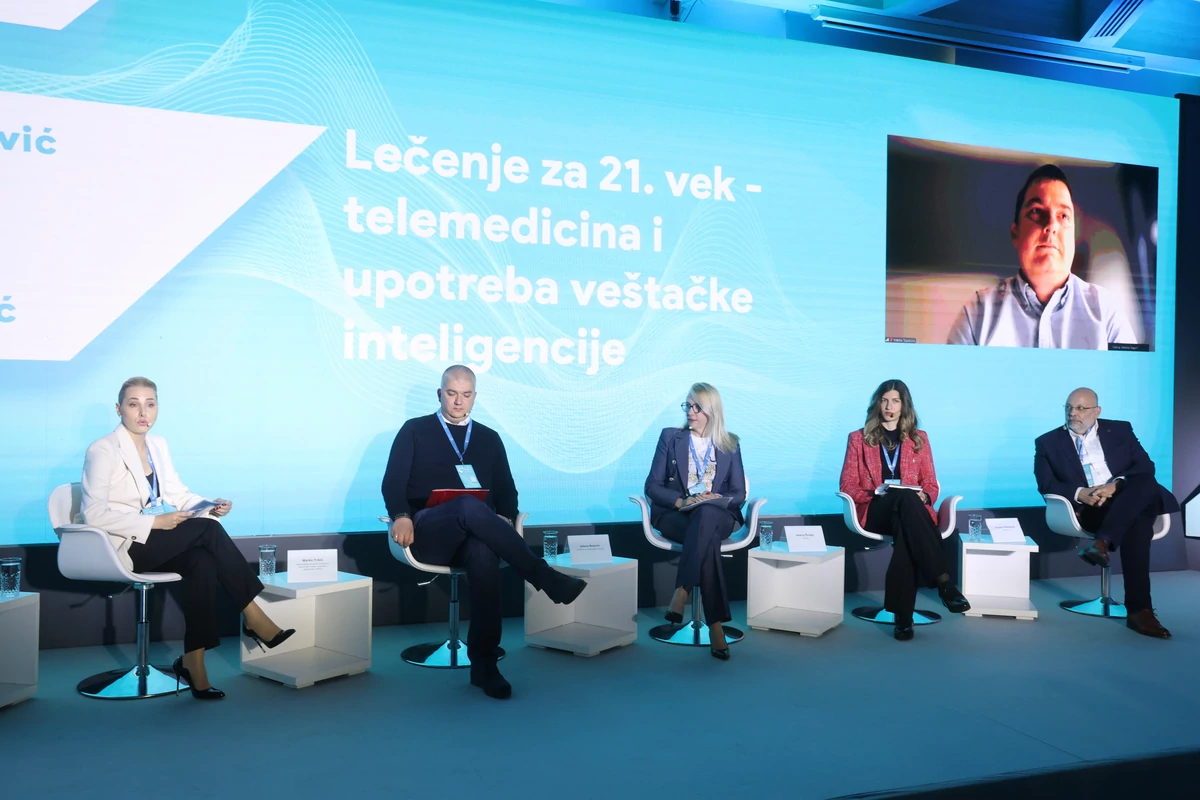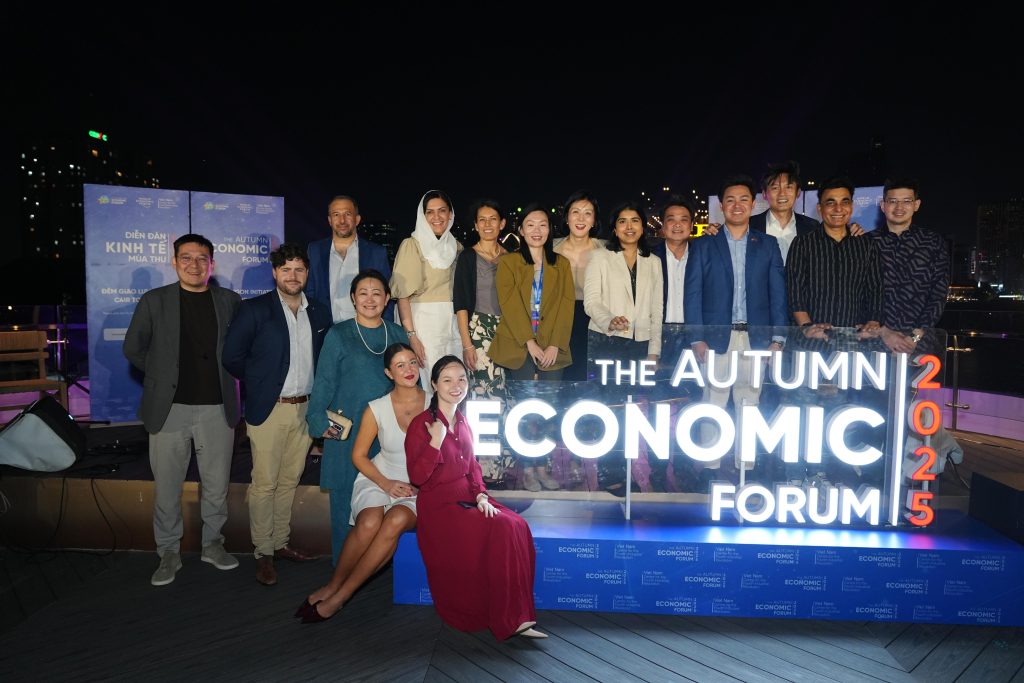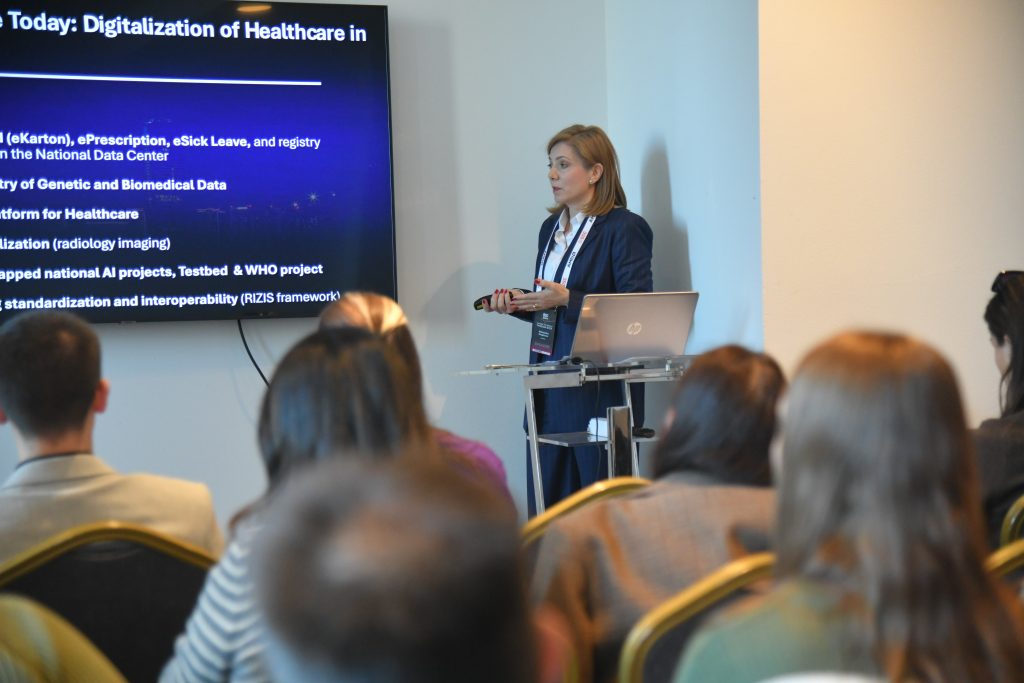On Tuesday, April 24, the director of the Centre for the Fourth Industrial Revolution of Serbia, Jelena Bojović, spoke at the largest regional conference dedicated to health and a healthy lifestyle, Health Up, on a panel entitled “Treatment for the 21st century – telemedicine and the use of artificial intelligence.” The conference was held on April 23 and 24 at the Mona Plaza Hotel in Zlatibor, with the aim of providing quality discussion and debate on the evolution of health.
The event was officially opened by the director of the National Health Insurance Fund of Serbia (RFZO), prof. Dr. Sanja Radojević Škodrić, and then the introductory speech was given by Fabio Scano, World Health Organization (WHO) Representative in Serbia. During two days, the conference hosted over 300 guests and experts from the field. They provided insights into six topics, discussing the progress of public health in Serbia, the national disease prevention program, investment in diagnostics and equipment, as well as the availability of treatment and education for the population.
The panel “Treatment for the 21st century – telemedicine and the use of artificial intelligence” focused on the transformative role of artificial intelligence across industries. Jelena Bojović, alongside colleagues Vukašin Radulović, founder of Infolab and Heliant, Marko Topalović, general director and founder of ArtiQ, Isidora Šmigić, manager for regulatory reform in healthcare at NALED, and Marko Trikić from the RFZO, answered questions such as what artificial intelligence brings to in the field of medicine, how telemedicine is changing healthcare, as well as what is the impact of the development of genetics on the personalized treatment of patients.
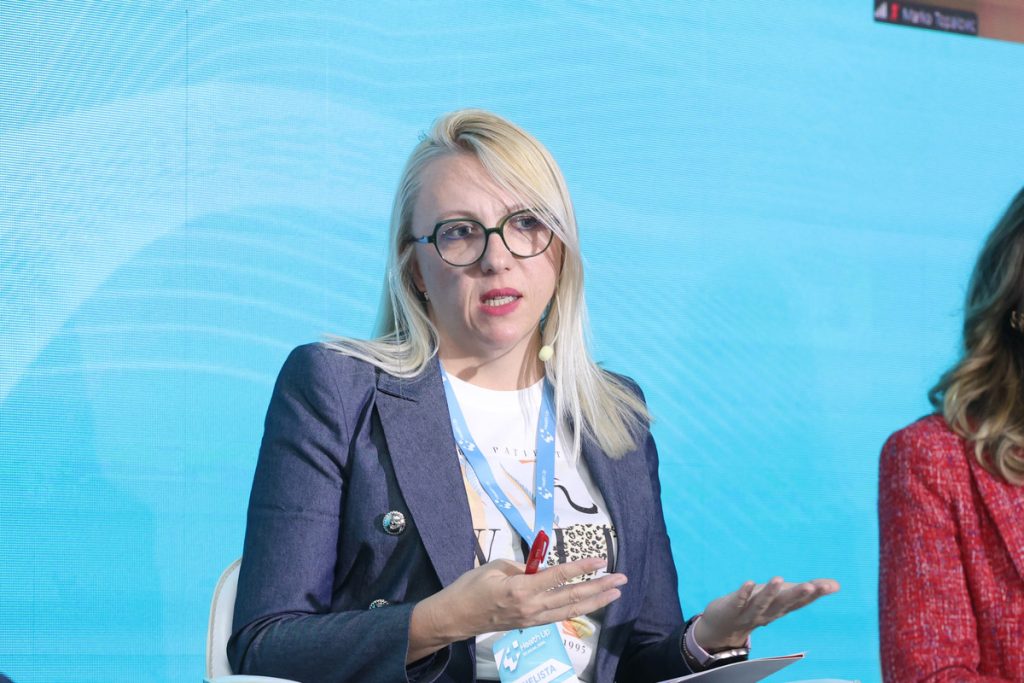
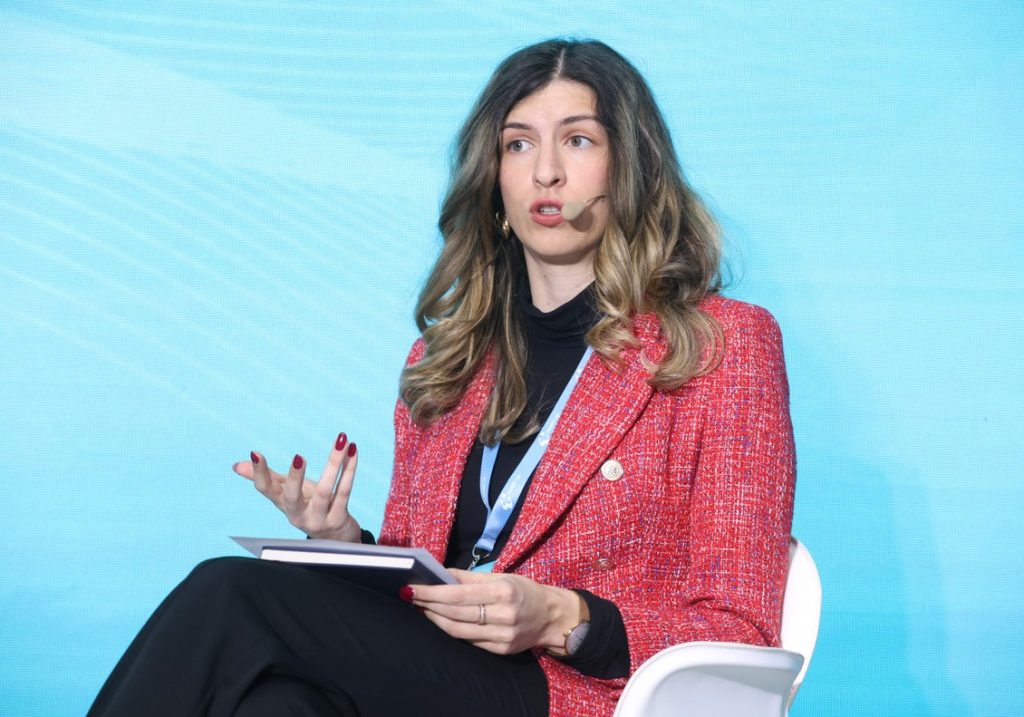
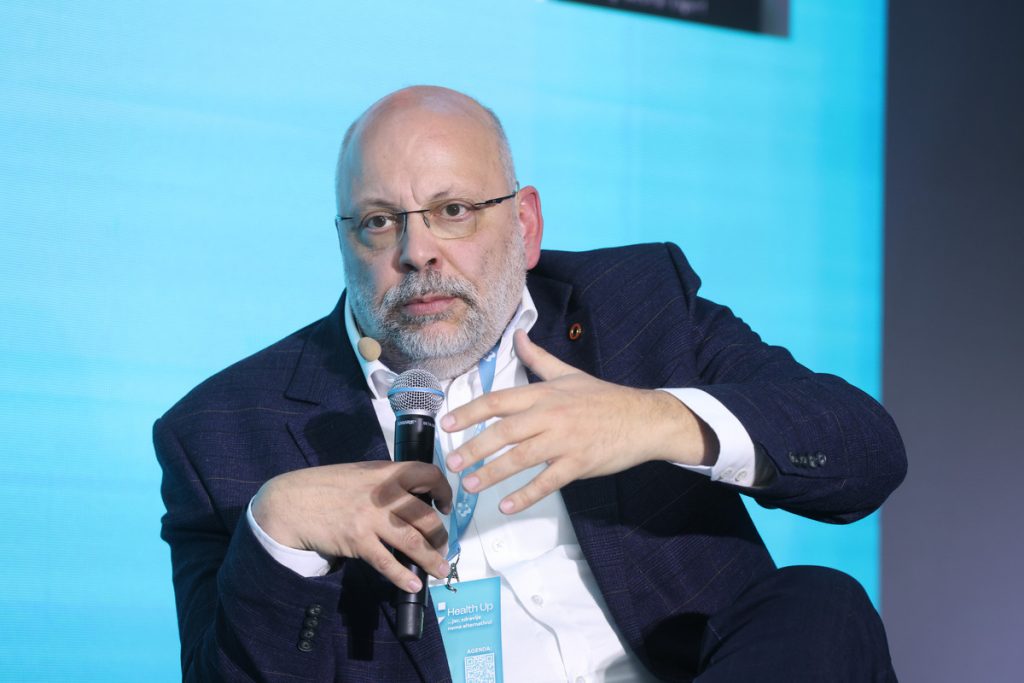
Bojović: We created a strategy of how and in what way we collect data and how to use it
The Director emphasized that the Centre for the Fourth Industrial Revolution is a component of the Government Service responsible for IT infrastructure and digitization. She specifically highlighted the Centre’s most significant project—the Genetic and Biomedical Data Registry. She emphasized the potential to establish a centralized storage system for genetic data, enabling every patient to access their information.
“His doctor will have access to the genetic data and genetic analyses derived from it in the centralized registry. This registry is scheduled to be established on January 1, 2025. Currently, we are in discussions with the Republic’s Expert Commission for Genetics to finalize the functional specifications of this register with doctors, ensuring their access to this data in an appropriate manner,” Bojović explained.
“The potential lies in the vast amount of genetic data generated from research. Many of our citizens—though not yet sufficient—participate in various scientific studies involving genetic analyses of blood or saliva samples. This data serves as a valuable source of knowledge, primarily benefiting the patients and participants in these studies. In the future, this data may lead to personalized treatment approaches. Consequently, the registry aims to centralize genetic data within the state data center, ensuring its security. Primarily, patients themselves will have access to their data.”
International Conference AI 4 Life: Biotech Future Forum in October
Additionally, Bojović announced the upcoming International Conference AI 4 Life: Biotech Future Forum scheduled for October 24 and 25. This conference will delve into the utilization of artificial intelligence in medicine and healthcare.
The Government of the Republic of Serbia is organizing a conference called “Biotech Future Forum” for the third year in a row. This year, the focus of the conference is AI, titled “AI for Life: Biotech Future Forum”. The goal is to better understand the role of AI in healthcare. “We are often afraid of what we do not understand,” Bojović points out, “and this conference is an opportunity to showcase the tools used in healthcare, along with their benefits and risks.
Health Up is an event that brings together researchers, doctors, scientists, leaders, and all those who are passionate about the topics of health and healthcare. The conference aims to encourage discussions on improving the health system, educating health workers, enhancing procedures, developing innovative medicines, and strengthening health capacities in the country and region. You can find more about the Health Up conference at the following link HERE.
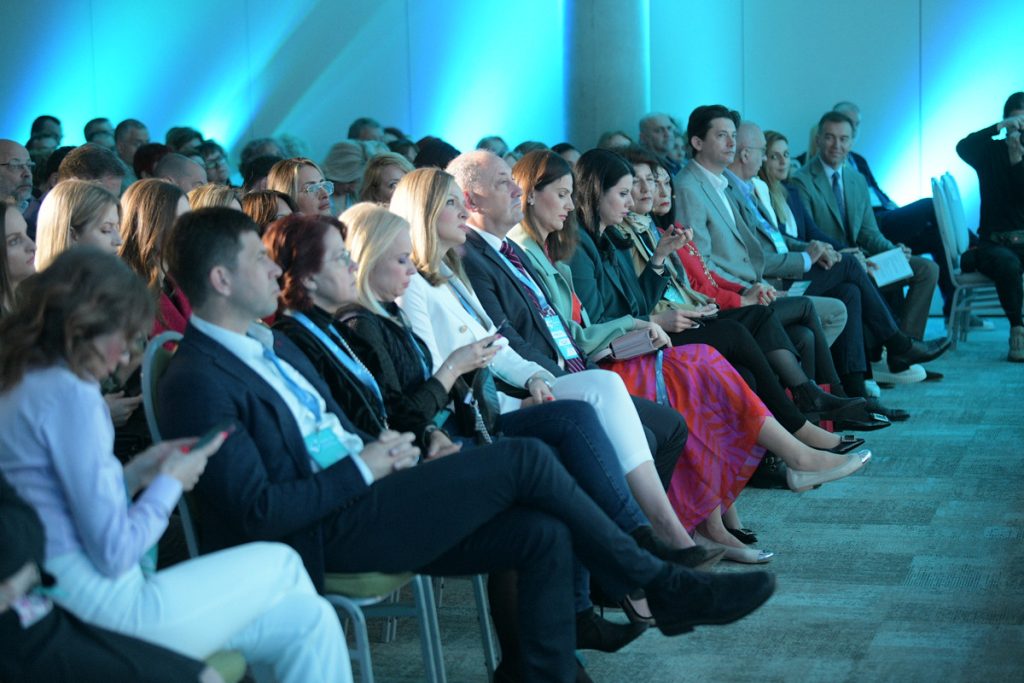
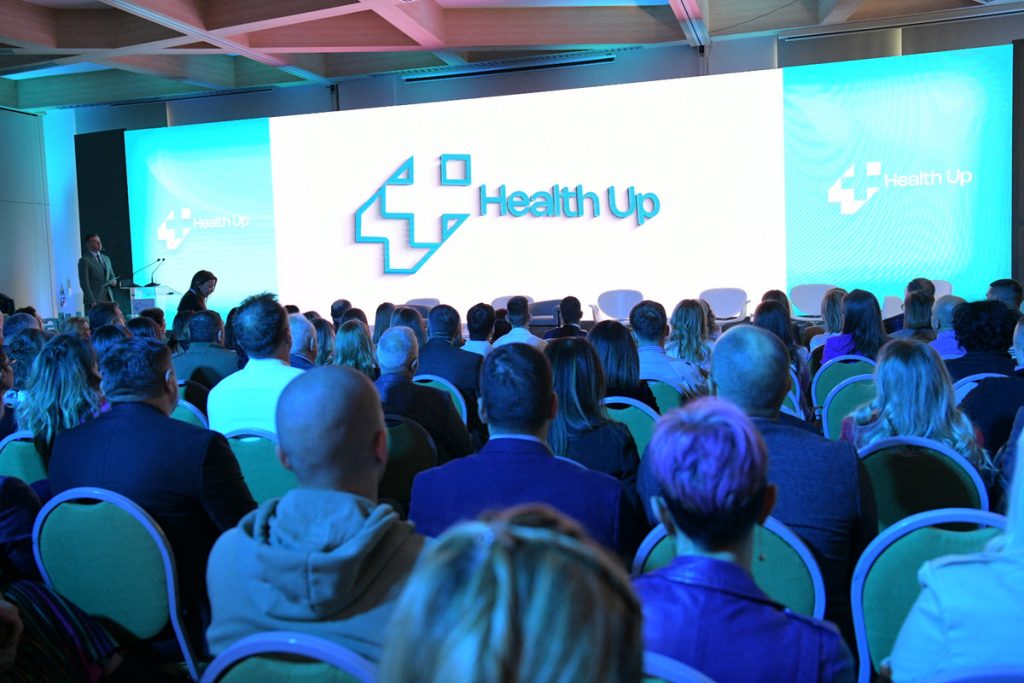
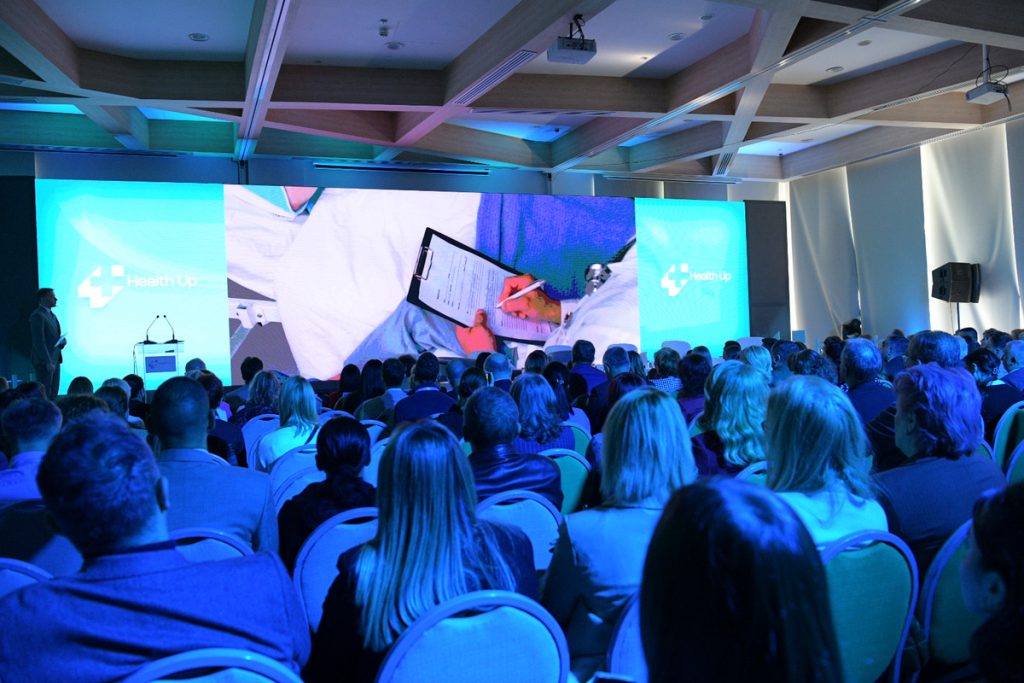
Source: Blic.

